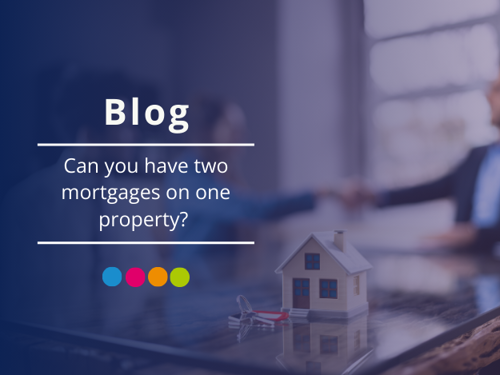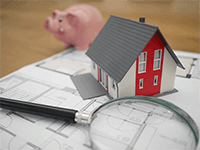
You might be wondering: Is it possible to have more than one mortgage on my home? The answer is yes, it’s completely possible.
In this blog, we’ll explain how it works, why people choose this option, and what you need to think about before moving forward.
How does it work?
If you take out a second loan against your home, it’s called a second charge mortgage (or secured loan). This is a type of loan that uses your property as security, just like your first mortgage.
However, your first mortgage takes priority. That’s why it’s called the “first charge.” So, if you ever fall behind on your payments and the property is repossessed, the first lender is paid back first. The second mortgage lender only gets paid afterwards (if there’s any money left). Because of this extra risk, they usually come with higher interest rates and fees compared to your main mortgage.
The amount you can borrow depends on how much equity you have in your property and whether you can afford the repayments.
Why might you want to do it?
There are several reasons why people choose to borrow money this way. Many people choose it when they need extra funds but don’t want to remortgage, either to avoid losing a good deal or paying early repayment charges. Others may struggle to get approved for a further advance or unsecured loan.
Common uses include:
- To pay off other debts: This can help you combine different loans or credit cards into one monthly payment.
- To improve your home: You might want to renovate your kitchen, build an extension, or carry out repairs.
- To cover big costs: Some people use it to pay for a wedding, private school fees, tax bills or even a holiday of a lifetime.
- To invest in a business: You may want to use your home’s value to help fund a new business venture.
Can you afford it?
Before going ahead, it’s really important to check whether you can afford both mortgage payments.
Ask yourself:
- What’s my current budget? Look at your income and expenses. Do you have enough money left each month to cover the new payment? If you're planning to consolidate debt, think about whether combining your existing payments into one loan will make things more manageable.
- What if things change? Think about what would happen if your income dropped or your bills went up. Would you still be able to manage both payments?
- Should I get advice? Consider whether speaking to a mortgage advisor may help you understand your options.
Summary
Having two mortgages on one property can be a way to unlock extra funds. It allows you to use some of the value in your home without changing your original mortgage.
But, like any type of borrowing, it comes with risks. Your home is on the line, so it’s important to be sure you can keep up with both payments. Always read the small print, compare deals, and make sure you understand what you’re signing up for.
If you’re thinking about this route, take your time and get the right advice. With the right plan in place, it can be a helpful way to reach your goals.
Loans are secured against property - Think carefully before securing other debts against your home. Your home may be repossessed if you do not keep up repayments on a mortgage or any other debt secured on it.





